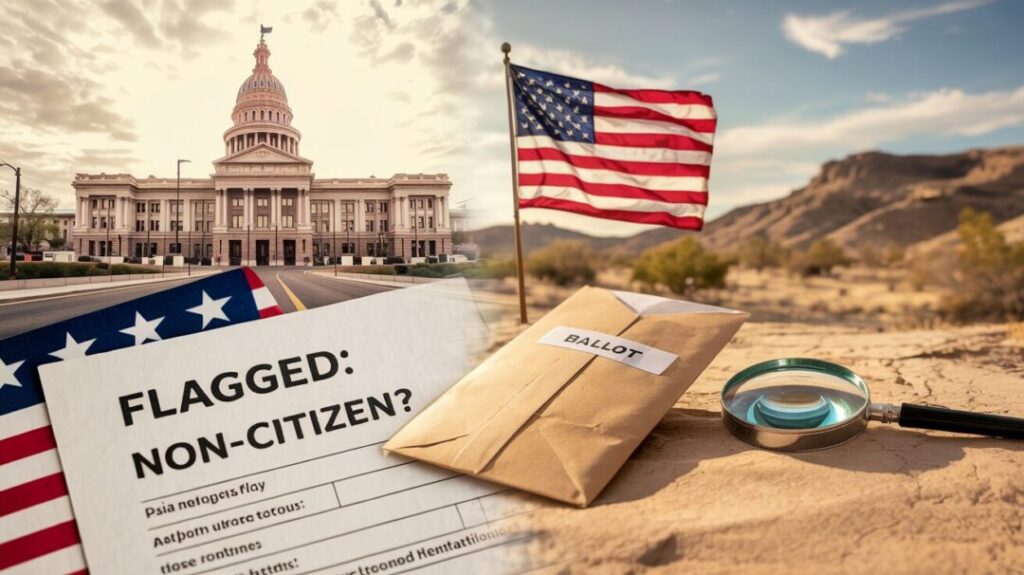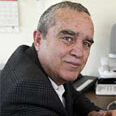In Texas, the office of Secretary of State Jane Nelson announced on October 20, 2025, that its team had compared its voter registration list – about 18 million people – to the federal government’s citizenship database known as the SAVE database.
The result: 2,724 people were flagged as “potential non-citizens.” That rate comes out to roughly 0.015 % of the Texas voter rolls.
Texas’s checks come as part of the state’s election-integrity law, Senate Bill 1 (2021), under which more than 1 million registrations were removed for various reasons (non-citizens, deceased voters, relocated individuals).
NEW: More than 2,500 potential illegal immigrants have infiltrated the Texas voter rolls, according to Texas Secretary of State Jane Nelson.
Nelson said that after running the 18 million registered voters in Texas through the federal SAVE database, authorities found 2,724… pic.twitter.com/jmcbq4BTou
— Melissa Hallman (@dotconnectinga) October 21, 2025
Texas Just Did What Every State Should Be Doing
For years many on the right have argued that even if only a small number of ineligible people vote (non-citizens, for example), that undermines the principle of “one citizen, one vote.” In a tight race, it could make all the difference.
Conservatives welcome the fact that Texas got direct access to the SAVE database – a federal system that helps verify citizenship – thanks to changes under the Donald Trump administration.
They argue that this means more states should have the tools to clean their rolls and protect lawful voters.
In other words: if someone who is not a US citizen is on the list and possibly voted, that’s unfair to the citizen who follows the law.
Also, Texas is sending suspected non-citizen registrations to the Texas Attorney General.
That “zero tolerance” mindset is exactly the kind of policy many conservatives prefer over mere warnings.
What does this mean for Nevada?
Though Texas is in the spotlight now, there is a clear connection to Nevada, where election-integrity debates are very much alive.
-
In Nevada, the Republican National Committee, the Nevada GOP and other groups sued the state, claiming that thousands of non-citizens were on the voter rolls. For example, the lawsuit alleged about 6,360 people listed as non-citizens via DMV data were registered in 2020, and some 3,987 of them voted.
-
The lawsuit claimed up to 11,000 non-citizens might be registered in the state.
-
The court dismissed parts of the case in August 2025, but other claims are still moving forward.
Texas’s findings reinforce the belief that non-citizen registration is a risk, however small.
Nevada conservatives may see Texas as a model: use federal databases, cross-check registrations, refer non-citizens for removal or investigation. We could adopt similar rigorous checks.
Also: Nevada voters approved 2024 Nevada Question 7, a constitutional amendment requiring voter ID or last-four digits of a driver’s license for voting by mail or in-person. It passed with strong support (73% Yes) and will come before voters again in 2026.
Critics and the bigger picture
Critics say that non-citizen voting is extremely rare and that focusing too much on tiny numbers can undermine confidence in elections.
For example, voting-rights organizations describe many of the lawsuits as “zombie lawsuits” that stir fear rather than fix systemic problems.
Also, it’s worth noting that while Texas found 2,724 “potential” non-citizens, that does not immediately mean 2,724 people illegally voted; they were flagged and need further investigation.
In Nevada, some election officials say the claims of non-citizens registered to vote are not backed by solid proof.
Conservatives might respond that the proof is partial because the verification systems haven’t been strong enough – but the concern remains.
Why this matters now
With early voting already under way in places like Texas, the timing matters.
The announcement comes as more states debate how to keep their voter rolls accurate without impeding lawful voters.
For Nevada, a swing state, the stakes are high: reforms adopted now could shape the 2026 midterms.
In short, eyes are on Texas to see how this plays out.
Whether Nevada takes similar action – or whether critics succeed in pushing back – will likely shape future election-integrity policy.
The opinions expressed by contributors are their own and do not necessarily represent the views of Nevada News & Views. This article was written with the assistance of AI. Please verify information and consult additional sources as needed.




